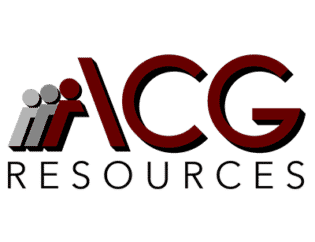The interest rates of a country set by the government of that country will have a huge impact on the future economic outlook. For the United States, the Federal Reserve is continuing to raise interest rates at stated intervals to combat inflation that has come down from a peak of over 9% but still remains at decades-high. Keep in mind the United States is still extremely integrated to the world economy so what happens there is likely to be felt elsewhere. Because of these factors and more, economists and financial analysts are predicting the following things you need to know about the future.
Some analysts and organizations (such as the IMF) have been caught off guard by how “persistent” inflation has been despite the efforts of governments to fight it, such as steadily increasing interest rates. Budget hawks and some fiscally astute observers have said they are not surprised at the continued high of inflation and consider themselves vindicated when they predicted (in 2020) such events would take place when the federal government started introducing trillions of new dollars into the market via various stimulus and other legislative packages. Unfortunately such high-volume spending not only has the effect of increased inflation now but will strain budgets in the future as servicing that money (borrowed from the future) gets increasingly expensive.
Caught in the middle of the fight between the government and inflation are institutions like banks whereby the extremely rare economic conditions have led to the rare collapse or near collapse of Silicon Valley Bank, Signature Bank (of NY), and Credit Suisse. This increase in risks when it comes to deposits-on-hand, lending money, and more paint a grim look at what the economy overall/worldwide is expected to do for the next 2 years. The US GDP is expected to drop below 1% by the end of 2023 and remain below 2% through the end of 2024.
Some good news is that the interest rates are expected to drop down to pre-COVID levels by the end of 2024. This is welcome news to anyone buying a home, refinancing a home, or taking out a substantial business/capital loan and has had to pay significantly more thanks to the high interest rates. Some financially attuned people have made moves to earn what they can while interest rates are high, such as opening a high-yield savings account or putting their money into a bank CD. Both of these financial instruments are examples of things that are earning more money nowadays than they used to prior to the increased interest rates.
Some analysts and organizations (such as the IMF) have been caught off guard by how “persistent” inflation has been despite the efforts of governments to fight it, such as steadily increasing interest rates. Budget hawks and some fiscally astute observers have said they are not surprised at the continued high of inflation and consider themselves vindicated when they predicted (in 2020) such events would take place when the federal government started introducing trillions of new dollars into the market via various stimulus and other legislative packages. Unfortunately such high-volume spending not only has the effect of increased inflation now but will strain budgets in the future as servicing that money (borrowed from the future) gets increasingly expensive.
Caught in the middle of the fight between the government and inflation are institutions like banks whereby the extremely rare economic conditions have led to the rare collapse or near collapse of Silicon Valley Bank, Signature Bank (of NY), and Credit Suisse. This increase in risks when it comes to deposits-on-hand, lending money, and more paint a grim look at what the economy overall/worldwide is expected to do for the next 2 years. The US GDP is expected to drop below 1% by the end of 2023 and remain below 2% through the end of 2024.
Some good news is that the interest rates are expected to drop down to pre-COVID levels by the end of 2024. This is welcome news to anyone buying a home, refinancing a home, or taking out a substantial business/capital loan and has had to pay significantly more thanks to the high interest rates. Some financially attuned people have made moves to earn what they can while interest rates are high, such as opening a high-yield savings account or putting their money into a bank CD. Both of these financial instruments are examples of things that are earning more money nowadays than they used to prior to the increased interest rates.







